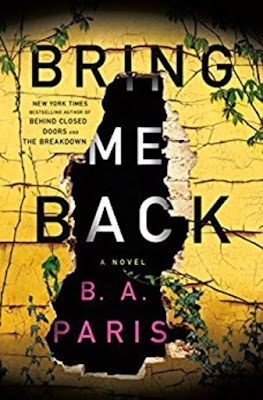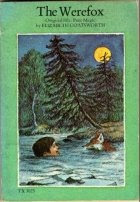50. Prisoners in the Promised Land by Marsha Forchuk Skrypuch
 Prisoners in the Promised Land: The Ukranian Internment Diary of Anya Soloniuk, Spirit Lake, Quebec, 1914 by Marsha Forchuk Skrypuch (US) - (Canada)
Prisoners in the Promised Land: The Ukranian Internment Diary of Anya Soloniuk, Spirit Lake, Quebec, 1914 by Marsha Forchuk Skrypuch (US) - (Canada)Dear Canada series
Pages: 243
Ages: 8+
Finished: Feb. 12, 2012
First Published: 2007
Publisher: Scholastic Canada
Genre: children, historical fiction, war, WWI, Canadian author
Rating: 5/5
First sentence: Dear Diary, your soft cover is dancing-boot red and your pages are the colour of freshly churned butter.
Publisher's Summary: "Anya and her family have made a difficult journey to Canada in search of a new life. But soon after they arrive in the land they hoped would welcome them, World War I is declared, and Ukrainians are considered "enemy aliens" — many of them sent away to internment camps. Anya must find a way to deal with the challenges in the land she now calls home."
Acquired: Borrowed a copy from my local library.
Reason for Reading: I am reading this whole series. I picked this particular volume because I am participating in a WWI reading challenge.
I've only read a couple of Skrypuch's books so far, but she has become one of my favourite Canadian juvenile authors. Mostly, her historical fiction revolves in some way around Ukrainians as that is where her heritage comes from and her own family genealogy is always a great starting point. Skrypuch does write about other topics but this recurring theme is interesting as it is unique. Once again, I have learned something new from one of Marsha's books. I had no knowledge whatsoever of the Ukrainian internment camps in Canada during WWI; of course everybody knows of the Japanese ones during WWII but why not the earlier Ukrainian ones? Perhaps because they make very little sense at all from a political point of view.
This book is a fantastic read. While it takes place primarily in Canada, it does start with the boat trip to the new land, the WWI story is told through the newspapers and discussions of the Ukrainian people as they sit caught in the middle of this war. Their homeland is the battlefield in Eastern Europe for a long period of time and yet the Ukrainians are neither friends with the Austrians/Germans who own their land or the Russians who invade it. All news they hear is bad, because whether it is the Allies or the "enemy" winning on their homeland it means their people, friends, relatives are in danger and dying. Through the news the family receives and letters from home and friends across Canada, until letters are halted due to the War Measures Act, we get to see a side of WWI which I've never experienced before. All my WWI reading has been about the trench warfare in France/Germany. It was very different in Eastern Europe, especially there in Galicia, a Ukrainian area owned by Austria-Hungary, which became part of the USSR later on, and finally was reunited as part of present day Ukraine.
The Ukrainians were interred in camps mostly because Canadian/British citizens confused them with Austrians (the enemy) and were ignorant and intolerable of them living within their society. Anya's mother and father loose their jobs for "patriotic" reasons. She leaves school to work for the family, but eventually after the men are taken away to camps the women share rat-infested flats, have very little to eat, are not safe on the streets on their own, and are exposed to all sorts of vile, racist comments, making life a living hell. When the family is moved to the internment camp in some ways life is better for them: they are together again as a family, it's cleaner, they have nicer living quarters, are fed, don't face as much of the racism, etc. but it is a prison and therefore they have lost their freedom. Another compelling page-turner for me as we get to learn about the war in Eastern Europe, life for the Ukrainian immigrants on the homefront, and finally life inside the internment camps. Very interesting and new-to-me information. As usual the Epilogue in these books describes what happened to the characters afterwards and the Historical Note is a goldmine of true facts. These are always my favourite part of the books in this series along with the contemporary photographs in the back. This is one of my favourites in the Dear Canada series so far. And I would love to read more on this topic.


I don't know anything about the Ukrainian internment so this sounds fascinating. We'll get your review on War Through the Generations soon.
ReplyDeleteDear Nicola,
ReplyDeleteThank you so much for the lovely review. I found out recently that I had two ancestors who were interned -- my paternal grandfather (a minor character in Prisoners in the Promised Land) and also my maternal grandmother's first cousin, who was born in Canada and interned at -- Spirit Lake. How coincidental is that?
I wrote an earlier book about the internment, a picture book illustrated by Michael Martchenko called Silver Threads. it was initially published in 1996 and republished by Fitzhenry & Whiteside in 2004. It saddens me that so few people know about Canada's first internment operations. What we don't acknowledge is repeated.
Marsha Skrypuch
www.calla.com
Thanks for stopping by, Marsha! My library has your other book so I've put a hold on "Silver Threads". This is a fascinating topic and amazing that it is so hidden in our historical past. My husband's mother's family is Ukranian. We have an old photo of all of them taken practically after they got off the boat.
ReplyDeleteInternment during the First World War is a topic so many Canadians know so little about. Ukrainians and other east Europemans were sent to concentration camps in Canada? Shocking. Thanks for bringing attention to the issue.
ReplyDeleteThat's neat about your family roots, Nicola. Amazing how many Canadians have a Ukrainian ancestor, yet how few published stories are written on Canadian-Ukrainian themes.
ReplyDeleteSilver Threads was my very first book, first published in 1996 by Penguin, then republished in 2004 by Fitzhenry & Whiteside. I love the illustrations by Michael Martchenko. It was my dream to have a book of mine illustrated by him. He illustrated one other of mine as well -- Enough -- for which I was awarded the Order of Princess Olha by Victor Yushchenko, former president of Ukraine.
Thanks for the review and for participating in the challenge. We've linked up your review and will have a snippet appear on the home page on March 23.
ReplyDelete